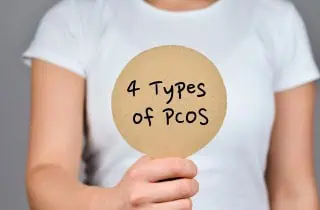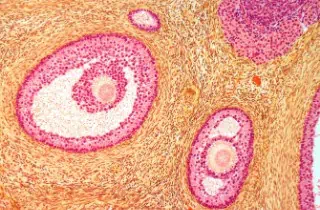
Symptoms of high prolactin (hyperprolactinemia) include irregular periods or no periods, premenstrual mood symptoms, loss of libido, headaches, breast pain, vaginal dryness, acne, and hirsutism or facial hair.
High prolactin is one of several causes of androgen excess and can be mistaken for polycystic ovary syndrome or PCOS. High prolactin may also play a role in pelvic pain and endometriosis.


